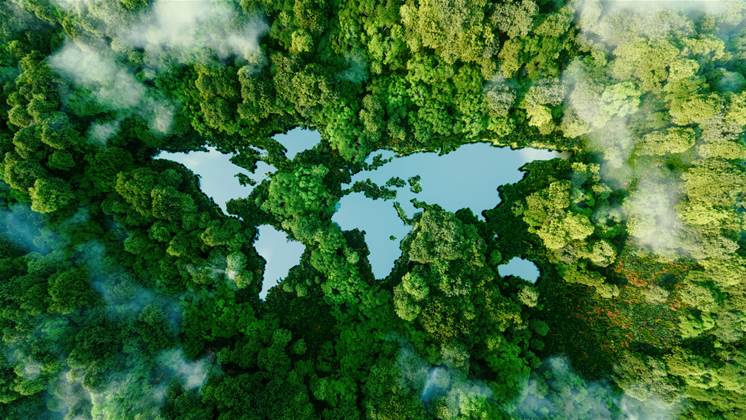Australia’s national science agency CSIRO has identified seven geopolitical, economic, social, technological and environmental megatrends that are expected to shape the next two decades.
CSIRO’s report Our Future World indicates that from now through to 2042, the global megatrends that will shape business and government are:

- Adapting to climate change
- Leaner, cleaner and greener – focus on solutions to resource constraints
- The escalating health imperative
- Geopolitical shifts
- Diving into digital – driven by remote work
- Increasingly autonomous – adoption of AI
- Unlocking the human dimension – trust, transparency, fairness, environmental and social governance.
According to CSIRO chief executive Dr Larry Marshall, “From resource scarcity to drug-resistant superbugs, disrupted global trade, and an increasingly unstable climate threatening our health and way of life – these are just some of the challenges we face.
“But these challenges also tell us where the most powerful innovation can be found, when we see a different future and leverage science to create it.”
CSIRO projects that the next wave of digital innovation is expected to generate $10 to $15 trillion globally, and will create significant opportunities for Australia, from creating jobs to growing wealth.
“We have the opportunity now to use science to invent the kind of world we want to live in – but we have to act, and we have to do it together,” said Marshall.
“Trust in science led Australia’s response to COVID-19, and science can help us lead a Team Australia response to the challenges ahead," he said.
Our Future World report co-lead author Dr Stefan Hajkowicz said that some of the trends identified are widely known, which others are at a nascent stage.
“We are, for example, just beginning to understand the potential long-term impacts of the pandemic on mental health and chronic illness,” he said.
“We anticipate that while the pandemic sped up digital transformation, the real explosion in our capability is yet to come. In this environment, digital skills will become more valuable, but rather than replacing human intelligence, technologies like AI will assist us in doing our work better.”
According to Claire Naughtin, trust has emerged as a central theme in dealing with the next two decades’ key challenges, including trust in institutions, technology, supply chains and security.
“This latest update on the global megatrends gives us a line of sight as to what has changed over the past decade and a view to the coming decades,” said Naughtin.
"Like aircraft engineers would use wind tunnels to test the robustness of new aircraft, we can use these megatrends to develop, test and refine future strategies to ensure they are robust, whatever the future holds.”




_(28).jpg&h=140&w=231&c=1&s=0)
.png&h=140&w=231&c=1&s=0)





 iTnews Executive Retreat - Security Leaders Edition
iTnews Executive Retreat - Security Leaders Edition
 iTnews Benchmark Awards 2026
iTnews Benchmark Awards 2026
 iTnews Cloud Covered Breakfast Summit
iTnews Cloud Covered Breakfast Summit
 The 2026 iAwards
The 2026 iAwards












_(1).jpg&h=140&w=231&c=1&s=0)



